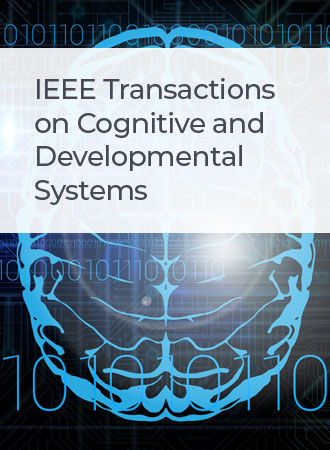PDRL:渐进式多样性在无监督技能发现中的深层状态和进一步行为
IF 4.9
3区 计算机科学
Q1 COMPUTER SCIENCE, ARTIFICIAL INTELLIGENCE
IEEE Transactions on Cognitive and Developmental Systems
Pub Date : 2024-10-02
DOI:10.1109/TCDS.2024.3471645
引用次数: 0
摘要
我们提出了渐进式多样性强化学习(PDRL),一种用于发现多样化技能的无监督强化学习(URL)方法。PDRL鼓励跨越多个步骤的学习行为,特别是通过引入“更深层次的状态”——需要更长的动作序列才能达到的状态,而不需要重复。为了解决在部分可观察环境中弱技能多样性和弱探索的挑战,PDRL采用了两种技能学习指示来促进探索和技能多样性,强调与前一个相比,每个观察和子轨迹的准确性。技能潜变量由状态或轨迹映射表示,有助于区分和恢复所学技能。这种双重表示促进了探索和技能多样性,而无需额外的建模或先验知识。PDRL还通过观察和子轨迹的结合整合了内在奖励,有效地防止了技能重复。跨多个基准测试的实验表明,与现有方法相比,PDRL发现了更广泛的技能范围。此外,PDRL预训练加速了目标条件强化学习(GCRL)任务的微调,如Fetch机器人操作任务所示。本文章由计算机程序翻译,如有差异,请以英文原文为准。
PDRL: Towards Deeper States and Further Behaviors in Unsupervised Skill Discovery by Progressive Diversity
We present progressive diversity reinforcement learning (PDRL), an unsupervised reinforcement learning (URL) method for discovering diverse skills. PDRL encourages learning behaviors that span multiple steps, particularly by introducing “deeper states”—states that require a longer sequence of actions to reach without repetition. To address the challenges of weak skill diversity and weak exploration in partially observable environments, PDRL employs two indications for skill learning to foster exploration and skill diversity, emphasizing each observation and subtrajectory's accuracy compared to its predecessor. Skill latent variables are represented by mappings from states or trajectories, helping to distinguish and recover learned skills. This dual representation promotes exploration and skill diversity without additional modeling or prior knowledge. PDRL also integrates intrinsic rewards through a combination of observations and subtrajectories, effectively preventing skill duplication. Experiments across multiple benchmarks show that PDRL discovers a broader range of skills compared to existing methods. Additionally, pretraining with PDRL accelerates fine-tuning in goal-conditioned reinforcement learning (GCRL) tasks, as demonstrated in Fetch robotic manipulation tasks.
求助全文
通过发布文献求助,成功后即可免费获取论文全文。
去求助
来源期刊

IEEE Transactions on Cognitive and Developmental Systems
Computer Science-Software
CiteScore
7.20
自引率
10.00%
发文量
170
期刊介绍:
The IEEE Transactions on Cognitive and Developmental Systems (TCDS) focuses on advances in the study of development and cognition in natural (humans, animals) and artificial (robots, agents) systems. It welcomes contributions from multiple related disciplines including cognitive systems, cognitive robotics, developmental and epigenetic robotics, autonomous and evolutionary robotics, social structures, multi-agent and artificial life systems, computational neuroscience, and developmental psychology. Articles on theoretical, computational, application-oriented, and experimental studies as well as reviews in these areas are considered.
 求助内容:
求助内容: 应助结果提醒方式:
应助结果提醒方式:


